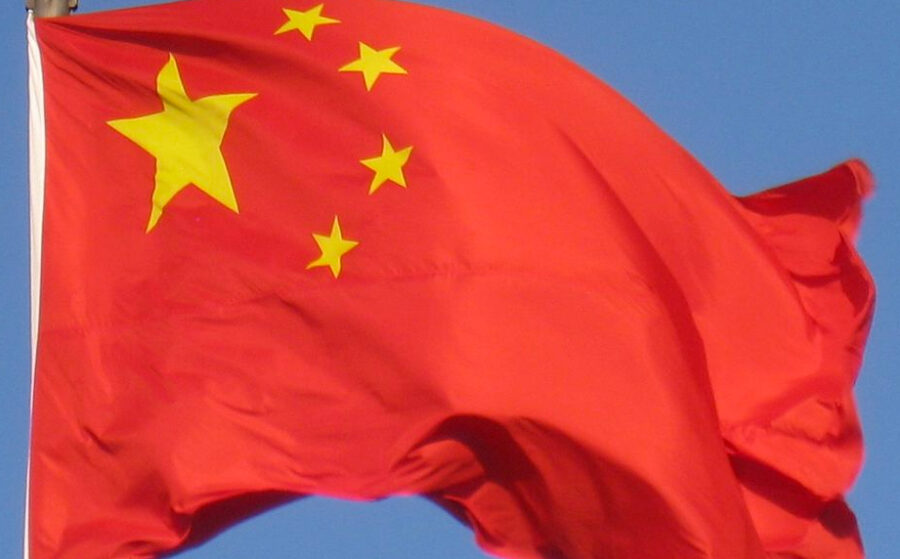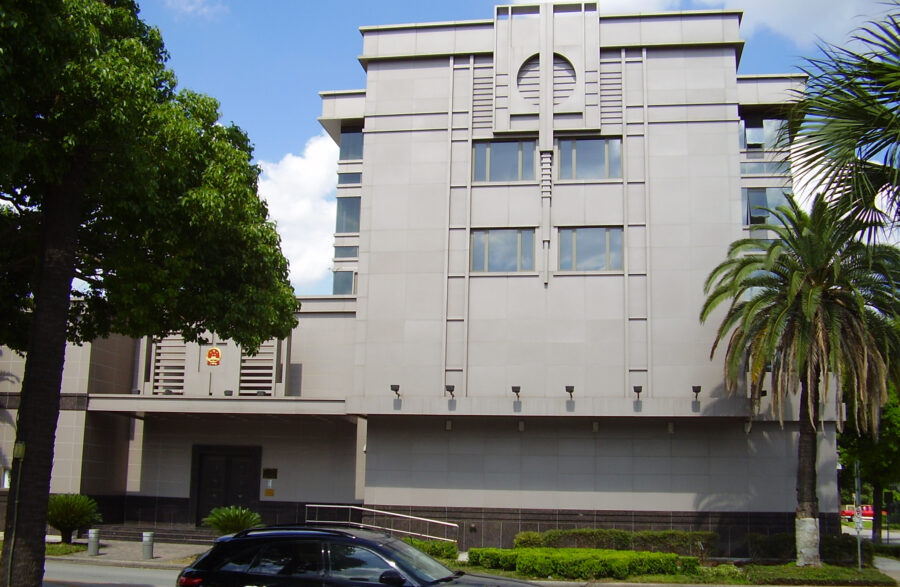Chinese Consulate Caught Burning Documents In Houston, US Shuts Them Down
The Trump administration has come out swinging with China firmly in their sights.
This article is more than 2 years old

The Trump administration has come out swinging with China firmly in their sights.
In a move that was both shocking and swift, the US has ordered the Chinese Consulate in Houston to shut down. State Department spokesperson Morgan Ortagus said in a statement, “We have directed the closure of [People’s Republic of China] Consulate General Houston, in order to protect American intellectual property and American’s (sic) private information.”
This comes on the heels of the U.S. Justice Department accusing a pair of Chinese hackers of trying to obtain information on the vaccine development for COVID-19. These aren’t the only allegations the U.S. Department is bringing forth, they have been involved in years-long battles against global cyber theft by the Chinese that involved industries such as high-end manufacturing, defense contractors, and solar energy companies.
The pair has been identified as Li Xiaoyu and Dong Jiazhi, who have both worked for themselves and the Chinese spy services. Even though the two countries signed a nonaggression pact in 2015, the pair continued to work against the United States, attempting to steal secrets in 2016 and 2017. Yes, we knew about it.
BURNING DOCUMENTS

Ortagus also said in her statement, invoking the Vienna Convention, that “The Vienna Convention states diplomats must ‘respect the laws and regulations of the receiving State’ and ‘have a duty not to interfere in the internal affairs of that State.’ She also added, “The United States will not tolerate the PRC’s violations of our sovereignty and intimidation of our people, just as we have not tolerated the PRC’s unfair trade practices, theft of American jobs, and other egregious behavior.”
Once word got to the Chinese Consulate that they might be shut down, the burning began. Consulate employees took metal barrels to the courtyard of their Houston building and began to load paper after paper into them, lighting them on fire. It was so bad that firefighters were called in by neighbors who saw the fire, though they were not allowed on the premises.
Here is what the Houston Police tweeted about the incident.
Of course, China wasn’t going to go quietly. On top of the burning of documents, Beijing has vowed retaliation. They first called upon the U.S. to reverse their decision, then added through Wang Wenbin, a Chinese foreign ministry spokesperson, “Should [the U.S.] insist on going down this wrong path, China will react with firm countermeasures.”
He also took a shot at the U.S., trying to turn the tables, “If we compare the two [countries], it is only too evident which is engaged in interference, infiltration, and confrontation.”
The State Department has already categorized the Chinese actions as “massive illegal spying and influence operations,” but haven’t gone into much detail. Secretary of State Mike Pompeo was in Copenhagen, saying at a news conference that the Trump administration is “setting out clear expectations as to how the Chinese Communist Party is going to behave.” He also warned the Chinese that if they didn’t behave accordingly, the United States would “take action” to protect our interests.
TIKTOK, TICK TOCK
The claims of the Chinese stealing vaccine secrets isn’t the only news along that front. Just recently tech giant Apple came out firing as it allegedly caught the Chinese app TikTok spying on millions of its iPhone users. This came to light during an Apple iOS update that is scheduled to come out in the fall.
Seems information copied to the clipboard can be obtained by the TikTok app, has been, and personal data has been stolen. ByteDance, the Chinese owner of TikTok, had vowed earlier in the year to have this corrected on their end, but it was recently revealed they had not. The vulnerability TikTok took advantage of was anytime TikTok was active on your phone, the app could read everything you were to copy onto another device to include work documents, passwords, financial information, sensitive emails. Anything and everything.
Apple, at first, claimed that they had mechanisms in place to combat this, but they were not effective enough to protect user privacy. This is why the iOS 14 update is key. It is also key, if one plans on continuing to use TikTok, to update to the latest version of the app, under the “promise” that they have remedied the issue.
Also of note is the U.S. class action lawsuit taken against ByteDance claiming now that the app is being loaded with Chinese surveillance software. Per the lawsuit, “TikTok clandestinely has vacuumed up and transferred to servers in China vast quantities of private and personally-identifiable user data that can be employed to identify, profile, and track the location and activities of users in the United States now and in the future.”
It also says, “TikTok also has surreptitiously taken user content, such as draft videos never intended for publication, without user knowledge or consent. In short, TikTok’s lighthearted fun comes at a heavy cost.” Buyer beware.
The escalation looks to continue as both the Trump administration and the Chinese government refuse to back down. The U.S. has imposed sanctions via an executive order signed by President Trump on Chinese officials who are responsible for Beijing’s growing control over Hong Kong. Of course, China responded in kind by saying they would impose their own sanctions against the United States. No one is sure where this will end.











